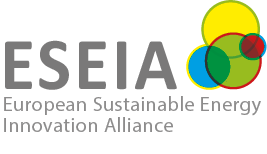SUSTAINABLE SMART CITIES
“Sustainable Materials – a Complementary Concept in the Transition Towards Nearly Zero Energy Buildings” – Anca Duta, Transilvania University of Braşov, Romania.
October 2015.
This lecture starts with an introduction in sustainable buildings, focusing on energy efficiency, energy saving, and renewable energy systems. Second part of the lecture is about sustainable communities, were not only sustainable energy production and consumption is addressed, but also sustainable water use, waste management and sustainable transportation. This part is followed by a case-study of the R&D Institute of the Transilvania University of Brasov.
“Green Buildings and Sustainable Urban Development” – Gintaras Stauskis, Urbanism and Sustainable Development, Department of Urban Design, Vilnius University, LT.
July 2014
This lecture draws on patterns of communication in urban planning and landscaping, and provides an overview of designing and implementing a green building project, from taking into consideration sustainable natural resource management to complying to the underpinning policy and regulatory framework, and employing the PPP method. Green buildings case studies from countries such as UK, USA, Ireland are also introduced.
“Building Integration of Solar Technologies” – Nicolae Olariu, Environment and Energy Research Department, University of Valahia, Romania
This presentation sets the scene for the underlying policy requirements, design and technology specifications for energy efficiency and performance in the buildings sector. A special area of focus is the Building Integration of PV Systems (BIPV) and the smart grid technologies.
“Challenges for the Building Sector in relation to EC 2050 Requirement: A Sector Perspective”- Javier Bonilla
This lecture points out to the policy background and the underpinning challenges posed by the EC Requirements for Buildings 2050 on the construction sector.
“Daylight needs, solar access, urban ventilation, and urban climate in high density city” – Edward NG, Chinese University of Hong Kong, China
This lecture sheds a light on current urban planning challenges and unveils solutions from the highly-dense city of Hong Kong.
“EC Requirements for Buildings 2050: Impacts on the Structure of the Building Sector and the Opportunity for New Markets” – Wolfgang Streicher, University of Innsbruck, Unit for Energy Efficient Buildings, Austria
Illustrates and expands on the effects of the Energy Performance of Buildings Directive (EPBD) on the design process of buildings.
“Energy efficiency” – Teresa Ponce de Leão, LNEG, Portugal
This lecture provides a global outlook on what a low-carbon future entails, and looks the transition to the clean energy technology systems, its inherent challenges and opportunities.
“Energy Efficient Buildings” – Peter Maydl, TU Graz, Austria; Technology and Testing of Building Materials
While defining various indicators of environmental sustainability, the presentation concentrates on a particular European EE Certification System, namely the DGNB Certificate for Sustainable Buildings.
“Public Participation as a tool in urban planning” – Gintaras Stauskis, Urbanism and Sustainable Development, Department of Urban Design, Vilnius University, LT
An introduction to the stages and techniques for engaging public participation, as well as an overview of current practices in the EU, in Romania, UK and Lithuania; this lecture offers also an incursion into Virtual Urban Simulation (VUS) in Vilnius city.
“Science City: A Collection of Buildings or an Innovative Campus?” – David Müller, ETH Zurich – Projekt Science City, Switzerland
Drawing a case for sustainable sites that are much more than a mere collection of buildings.
“Sustainable industrial production and waste minimisation” – Maria Gavrilescu, Gheorghe Asachi Technical University of Iasi, Romania
A comprehensive lecture on the role of industrial ecology for sustainable cities, offering a historical perspective on industrial development. This presentation addresses also waste minimization and European sustainable consumption and production policies, while reviewing key sustainable industrial development measures.
“Sustainable communities and societal challenges” – Ion Visa, Transilvania University of Brasov, Romania
This lecture sets forth a framework for integrating energy efficiency and renewables in the urban built environment, as well as a 4-steps design approach for planning the energy mix. Three case studies are introduced as examples of good practice from the campus and the R&D Institute of the Transilvania University of Brasov, and the RTD Centre Renewable Energy Systems and Recycling.
“The civilisation biorefinery” – Ina Körner, TU Hamburg Harburg, Germany; Bioconversion and Emission Reduction
Presents the set-up of biorefineries for the sustainable and efficient utilization of urban bioresources, and introduces a practical case study on wastewater treatment facilities in the city of Hamburg.
“Smart density and the case of aspern Urban Lakeside, Vienna” – Johannes Fiedler, Technical University of Braunschweig, Germany
Drawing on several examples of urban planning, this lecture explores smart density and other sustainability concepts in cities.
“Think Globally, Plan Locally – Strategies for the Urban Design of Tomorrow” – Werner Sobek, University of Stuttgart, Light Weight Structures and Conceptual Design Department, Germany
Design ideas for the cities of the future.
“Brașov Metropolitan area: Initiatives for a Sustainable Development” – Sorin Ganea, AMB Unit of Transilvania University of Brașov, Romania
Economic and territorial cohesion in Brașov Metropolitan area, and examples of local cooperation for sustainable development.

